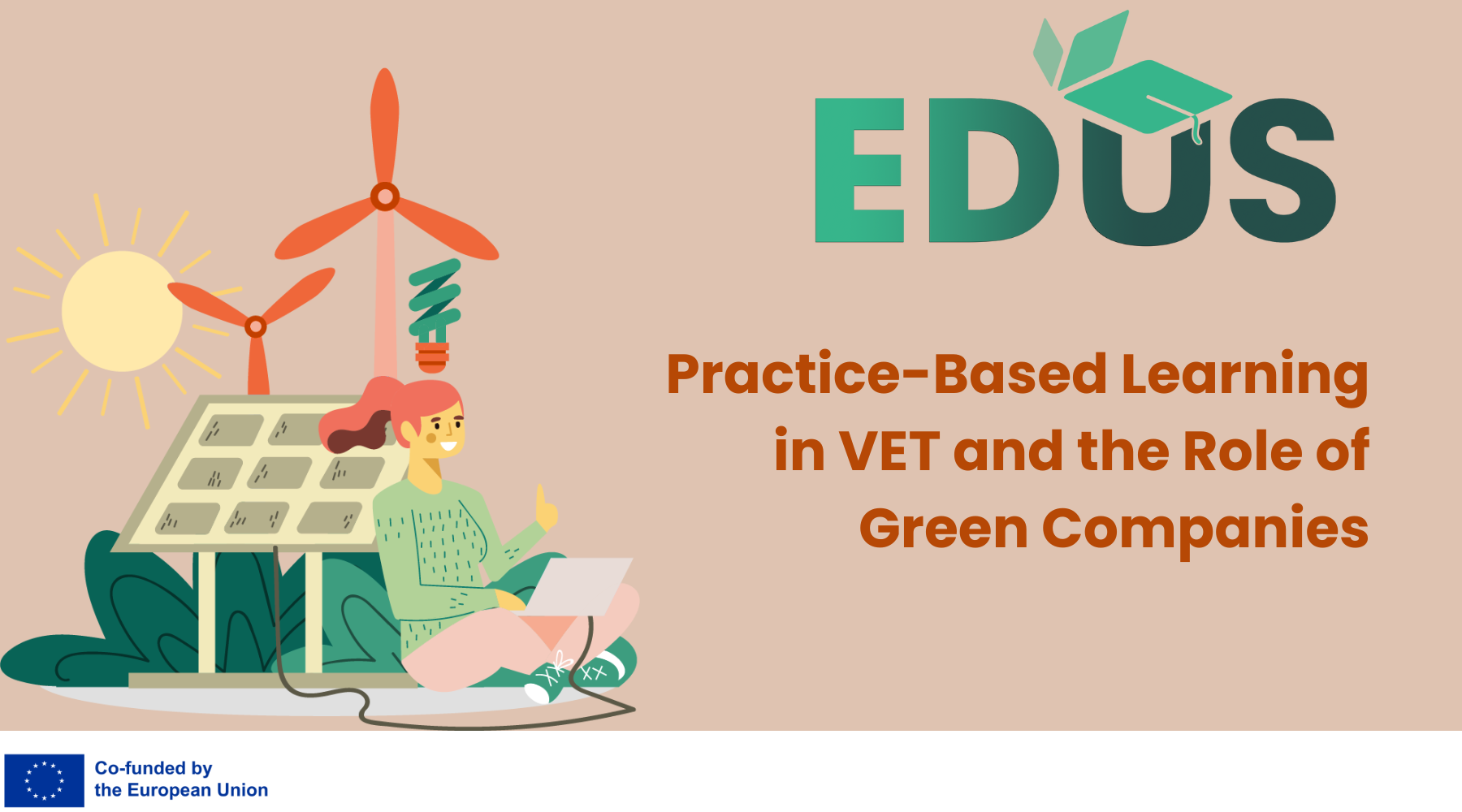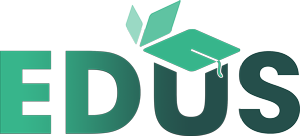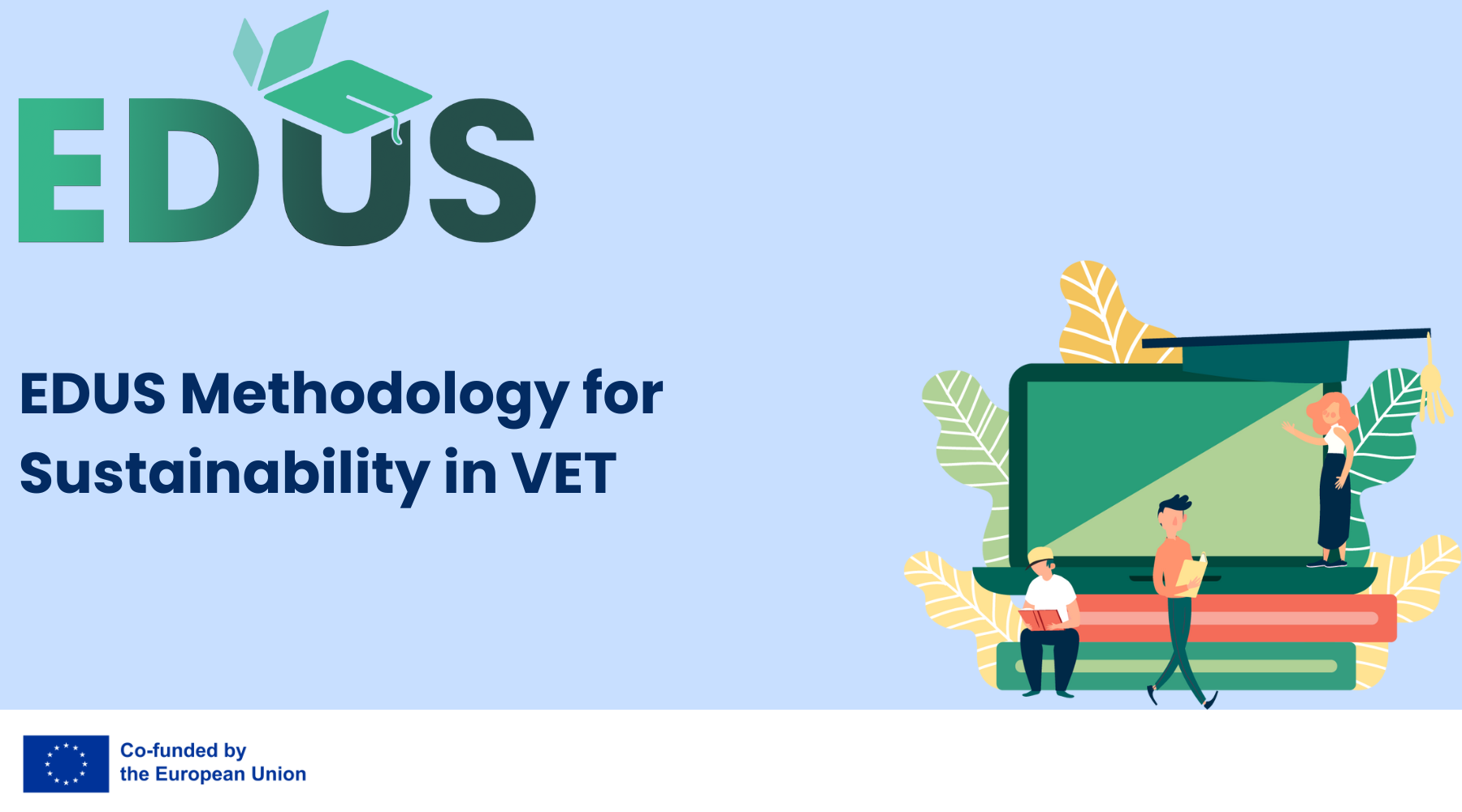
Practice-Based Learning in VET and the Role of Green Companies
06/05/2025 admin
Written by Danijela Sitar, IC Geoss
As the climate crisis intensifies and societies seek a more sustainable future, vocational education and training (VET) has a growing responsibility not only to prepare learners for the labour market but also to equip them with the competences needed for environmental stewardship. Central to this mission is practice-based learning which offers a unique opportunity to align skill development with real-world sustainability challenges.
However, to be truly impactful, practical learning must go beyond conventional work placements. It should be embedded within collaborations with green companies, where learners can experience sustainability as more than a concept but as daily practice.
The Urgency of Green Skills
The growing environmental footprint of human activity is undeniable. According to the Global Footprint Network (2024), humanity is using nature 1.7 times faster than ecosystems can regenerate, with Earth Overshoot Day falling earlier each year. If we are to reverse this trajectory, the transition to green economies must be supported by education systems that prioritize sustainability competences.
In response to this, the European Commission has introduced GreenComp: The European Sustainability Competence Framework, which outlines 12 key competences structured around four areas: embodying sustainability values, embracing complexity, envisioning sustainable futures, and acting for sustainability. These competences form a critical basis for rethinking how VET providers structure learning environments, particularly through practice-based experiences.
Why Green Companies Matter for Practice-Based Learning
Green companies are businesses that actively prioritize environmental sustainability in their operations, products, and long-term strategies. This includes reducing carbon emissions, minimizing waste, conserving resources, and supporting circular economy principles. Unlike traditional companies that may treat sustainability as a secondary concern, green companies integrate ecological thinking into every layer of decision-making. For VET learners, undertaking practice-based learning in such companies offers a significantly richer and more future-oriented educational experience. Not only do students gain technical skills relevant to their trade, but they also observe and participate in sustainable practices in real time.
Connecting VET Learners with Green Workplaces
While GreenComp provides the conceptual foundation for sustainability education, its successful implementation depends on practice-based partnerships between VET institutions and the green economy. This is where VET can become a transformative force. Real-world learning in sustainable industries such as renewable energy, circular manufacturing, or eco-tourism not only builds technical proficiency but also cultivates a mindset oriented toward sustainability and systems thinking.
The Greening of VET report by the European Training Foundation (ETF, 2023) highlights that work-based learning (WBL) in green companies provides learners with a double benefit – exposure to both professional practices and sustainability principles in action. According to the report, students placed in companies that are actively transitioning toward green practices are more likely to encounter tasks, materials, and organizational cultures that support the development of green competences. Furthermore, trainers in green companies can act as role models, reinforcing environmental values and behaviours that formal education alone cannot instil (ETF, 2023).
For example, students can participate in practical modules in collaboration with local enterprises focused on energy efficiency and sustainable production. These include internships with eco-certified firms and project-based assignments where students develop solutions to reduce waste or optimize energy use—bringing sustainability to life through their own efforts.
Embedding Sustainability Through Project-Based Learning
Project-based learning (PBL) is a natural pedagogical fit for sustainability education. As Chocarro et al. (2021) argue, PBL supports deep learning by enabling students to engage with complex, real-world problems collaboratively and creatively. When projects are embedded within green company settings, students can observe sustainability principles in action, reflect critically, and innovate meaningfully.
VET at the Crossroads of Education and the Green Transition
As Europe moves toward a climate-neutral economy, green skills will no longer be niche but essential. Yet this transition cannot happen without equipping young people and adult learners with the practical capabilities and ethical orientation to drive change. VET must evolve not only to meet labour market demands but also to contribute to environmental resilience and social equity.
At IC GEOSS, as adult educator VET provider, we advocate for stronger collaboration between VET providers and green enterprises, grounded in mutual learning and co-creation. We believe that practical learning in green companies transforms education into a force for societal change. It not only prepares learners for employment but also empowers them to become active participants in building a sustainable future.
References
European Training Foundation. (2023). Greening of VET: Qualifications and Learning Outcomes for the Green Transition. Torino: ETF. https://www.etf.europa.eu/sites/default/files/2023-05/GRETA_Greening%20of%20VET.pdf
Bianchi, G., Pisiotis, U., & Cabrera Giraldez, M. (2021). GreenComp: The European sustainability competence framework. Publications Office of the European Union. https://publications.jrc.ec.europa.eu/repository/handle/JRC128040
Chocarro, E., Corti, D., Rodríguez, C., & Aranda, M. (2021). Educational chatbots for project-based learning. International Journal of Educational Technology in Higher Education, 18(1), 1–19. https://educationaltechnologyjournal.springeropen.com/articles/10.1186/s41239-021-00302-w
EDUS. (2025). EDUS Framework for Vocational Education and Training. https://edusproject.eu/
Footprint Network. (2024). Earth Overshoot Day. https://overshoot.footprintnetwork.org/







